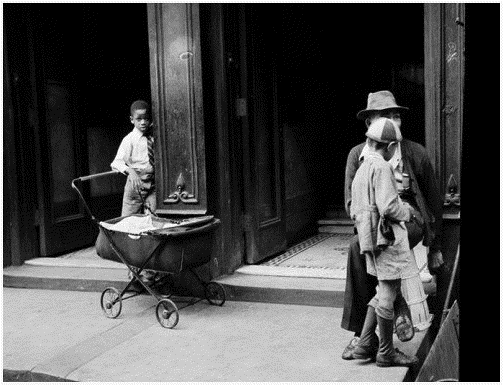
Shoulda Been
Jimi Savannah
Patricia Smith
(Coffee House Press)

Patricia Smith is able to fit into her poems almost everything that ever happened to her. The death of her father and grandfather in Aliceville, Alabama, her mother moving north (a copy of Jet under her arm ... with the story of the death of Emmett Till), growing up in the Chicago black district, her first doll, falling in love with her teacher, falling in love with words, falling in love (with a white guy), learning to be sexy ("your body a marquee"), being beaten by her mother, fighting her mother, the death of her step-father, learning to sneak around:getting turned around in the subway, flinging all them
curse words, inhaling a quick supper before supper
fried up in hot Crisco and granulated sugar,
sneaking out though open windows when the night goes dark,
calling mamas bitches under their breath, staying up
till dawn to see what hides.There are over fifty poems in this volume, and --- as you would suspect in an autobiography treating with the reality of being black in the deep South (for her mother), being black in Chicago (for the two of them) --- it can be grim. Her mother says to her "Always treat white folks right," because they give you things.
Like credit,
compliments, passing grades, government jobs, direction,
extra S&H stamps, produce painted to look fresh,
a religion.But Shoulda Been Jim Savannah is not just another screed on prejudice in the south and in the north; there's room for fun and silliness and being thirteen and falling in love along with a stupendous portrait of Annie Pearl Smith taking classes to rid herself of her "afflicted black tongue," where her teacher guides her patiently "through lazy ings and ers, slowly scraping / her throat clean of the moist and raging infection of / Aliceville, Alabama."
This is a wry collection of memories of growing up, learning to lie (to get out at night), learning to be sexy, learning to walk just so, learning to hide ... and then, finally, learning to be proud of who and what she is.
The star of this whole brew is Annie Pearl Smith. She comes to life on these pages, comes to life right or wrong. Scrubbing Patricia with Lysol ... trying to lighten her skin ("Mama can't you read it? ... I can't help being my color!") Then Patricia being forced to care for Aunt Mary, old and mad with Alzheimer's, and "It was weeks before I noticed that my mother / wasn't part of the reluctant rotation of caregivers."
Then there are those funny classes to get rid of "ain't gots" and "I done beens" and "he be's;" and most of all, Annie Pearl Smith's cagey, stolid reaction to the walk on the moon:
No man gon' reach
down, just scoop up moon, even if Mr. Cronkite say he did.
Them white men way out in a desert somewhere, stumbling
round in them blowed-up suits with movie stuff back a' them
laughing inside those glass heads. And colored folks aahing
and oohing like the number's in and they got money comin.'
Chile, I sho' didn't raise you to be this much fool this fast.
People got to pray they way up. One small step ain't enough.--- Maria Washington